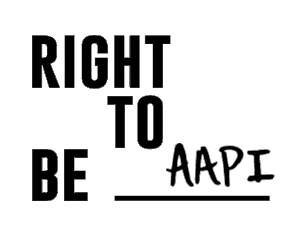-
What is HeartMob?
HeartMob is a platform that provides real-time support to individuals experiencing online harassment and empowers bystanders to act.
-
What exactly is online harassment?
Online harassment includes a wide range of targeted behaviors including: threats, continued hateful messages, doxxing, DDoS attacks, swatting, defamation, and more. Online harassment can target (or come from) a group or individual and often has the expressed purpose of having the individual or group leave the internet, take down their content, or to dissuade them from publically having a point of view.
While there is space for debate and discussion online (as well as conflicting ideas!), what separates online harassment from healthy discourse is the focus on harm: including publishing personal information, sending threats with the intention to scare or harm, using discriminatory language against an individual, and even directly promoting harm against a person or organization. We believe in a free internet where individuals feel safe to connect and speak freely, regardless of their religion, identity, or political ideology.
-
Why does HeartMob matter?
According to a Pew Research Center survey from late last year, 40% of people have been harassed online, and 73% of people have witnessed someone else being harassed online. Among people between the ages of 18 and 29, this figure jumps up to 92%. For too long, many people have left online spaces because they feel unsafe or unsupported.
-
How does HeartMob work?
For too long, many of us have sat back and watched, unsure how to ask for help or how to provide support and resources. With HeartMob, you’ll have a system of supporters beside you, and a user-driven set of actions you can take right now to lend a helping hand. HeartMob allows users to easily document their harassment and maintain complete control over their story. Once documented, users will have the option of keeping their report private and cataloguing it in case it escalates, or they can make the report public. If they choose to make it public, they will be able to choose from a menu of options on how they want bystanders to support them, take action, or intervene. They are also given extensive resources including: safety planning, materials on how to differentiate an empty threat from a real threat, online harassment laws and details on how to report their harassment to authorities (if requested), and referrals to other organizations that can provide counseling and legal services.
Bystanders looking to provide support will receive public requests, along with chosen actions of support. You can “have someone’s back” and know that you’re helping them out in a time of need while directly contributing to safer spaces online. HeartMob staff will review all messages and reports to ensure the platform remains safe and supportive.
-
Is HeartMob secure?
We take the security and privacy of HeartMobbers very seriously. The last thing we want is for someone to be harassed as a result of using HeartMob. As a result, HeartMob will implement social and technical security best practices. These practices will include: Moderated accounts and trusted invitation system, regular technical safety audits, moderated messaging, privacy options for reporting.
-
Who can see my report?
Once online harassment is documented on HeartMob, users will have the option of keeping their report private and cataloguing it in case it escalates, or they can make the report public. If they choose to make it public, they will be able to choose from a menu of options on how they want bystanders to support them, take action, or intervene. HeartMob will review all messages and reports to ensure the platform remains safe and supportive.
-
Do I really need to document my harassment?
Documentation is about telling the story, whether through a screenshot or a hyperlink. We live in a world where the first public reaction to most reports of violence against women and LGBTQIA+ folks is doubt. Documenting can help people see the world from your eyes. Speaking out and sharing your story is a revolutionary act. That said, documentation is not right for every situation. If you don’t feel safe, don’t do it. Feel free to check out our Know Your Rights guide for more information on situations where documentation is important.
-
How is HeartMob moderated?
All activity on the platform is reviewed by trained staff on the HeartMob team. This includes harassment cases, supportive messages, help requests, documentation, and HeartMobber accounts.
All HeartMobber accounts are reviewed prior to being accepted through the social media account linked to the request to determine if a person has a stable online identity, as well as no history of hate. Some well-intentioned HeartMobber accounts may be rejected if their linked social media platforms do not meet our predetermined criteria. We hope that you understand that this is a safety precaution, and you are free to reapply for an account at any time.
-
What about the right ot freedom of speech?
Free speech doesn’t mean anything if individuals do not feel safe and are not free from abuse and harassment. Although the line between hate speech and free speech is a difficult one to draw, people should be held accountable for what they say on the internet.
-
Isn't online harassment the price you pay for engaging with the internet?
No, absolutely not. Everyone has the right to live a life free from any form of abuse and harassment and this concept does not suddenly fail to apply in the online world. Being online doesn’t make a threat less real or a racist comment less hurtful and they should be held to the same standards as those of offline harassment. It is not your responsibility to accept harassment for using the internet; it is the responsibility of harassers not to harass you.
-
Who is developing the platform?
HeartMob is a project of Hollaback!, a nonprofit organization that works to address harassment in public spaces. The project was conceptualized and co-founded by Emily May, Debjani Roy, Jill Dimond, Jae Cameron, and Courtney Young -- in conversation with over 100 people who had been harassed online. Initial funding was provided from the Knight Foundation and Digital Trust Foundation. Sassafras Tech Collective developed the HeartMob platform and will provide any necessary updates. They are a worker-owned technology cooperative specializing in web/app design and development for nonprofits. The collective brings expertise from industry, academia, and social justice organizing, alongside extensive professional backgrounds in code and design.


Confronting online harassers can be dangerous. What about safety issues? How do I know that it is safe to interact with HeartMob on social media?
Some of our users have tagged HeartMob (@theheartmob) on twitter to thank us and support us, only to find harassers responding to their tweets. While it’s important to us (and many of our users) that people know about HeartMob so they can get the support they need -- it’s even more important to us that you’re safe.
Unfortunately, we can’t control what happens on social media. Harassers may be monitoring our social media feeds and there is a potential risk in tagging us, or engaging with HeartMob online. It’s a not-so-subtle reminder why our work is so important. If interacting with HeartMob on social media platforms does not feel safe to you, we encourage you to follow your instincts. We are still happy to have you on the platform whether or not interacting with us on social media is right for you.